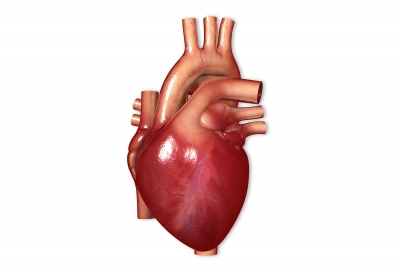Boom-boom… boom-boom… goes the heart.
- The heart is a muscle that pumps approximately 5 litres (1.3 gallons) of blood around the human body every minute..
- The Greek word for ‘heart’ is kardia, which is where the word ‘cardiac’, and other heart related medical words like ‘cardiology’ come from.
- The human heart beats an average of 72 beats per minute, and will beat approximately 38 million beats in a year, although animal beatings can range from 20 to 600 beats per minute.
- The human heart is typically 250 to 350 grams (9 to 12 pounds) in mass, depending on gender, and is approximately the size of a fist.
- The heart has four chambers and valves that control the flow of blood and that the blood travels through before it enters veins or arteries.
Heart
Image courtesy of Dream Designs/ Free Digital Photos
- The job of the heart is to send deoxygenated blood to the lungs, where it becomes oxygenated and then pumped around the body.
- The valves of the heart are said to have been first discovered in the 300s BC.
- It was originally thought that emotions were formed in the heart, but later it was discovered emotions were formed in the brain.
- Smoking and eating unhealthy foods can damage the heart but eating healthy foods and exercising makes it stronger.
- An average of 7.2 million people in the world die annually due to heart disease, such as cardiac arrest.
Bibliography:
Heart, 2013, National Geographic, <http://science.nationalgeographic.com.au/science/health-and-human-body/human-body/heart-article/>
Heart, 2013, Wikipedia, <http://en.wikipedia.org/wiki/Heart>







